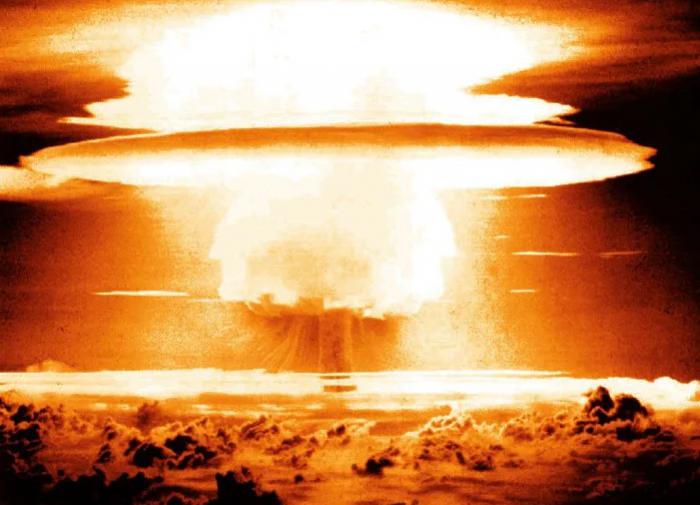Underground explosion in Nevada: Russia takes it as a signal
The underground explosion that the United States carried out at a nuclear test site in Nevada a few hours after Moscow withdrew its ratification of the Comprehensive Nuclear Test Ban Treaty (CTBT) could be a signal to Russia that it would impossible to conceal potential nuclear tests in the future.

The underground explosion took place in the USA on October 18 — the day when the State Duma passed the law to withdraw Russia's ratification of the CTBT (The Federation Council is to consider the law on October 25).
"A non-nuclear explosive device was tested in Nevada in order to develop technologies for detecting nuclear tests that other countries conduct. Perhaps this is a signal, including to Russia, about the impossibility of concealing potential nuclear tests in the future. For the time being, however, there is no information to confirm that Russia is planning such tests. If there are such plans, they will be accompanied with a corresponding information campaign to emphasise their significance to strengthen nuclear deterrence," Dmitry Stefanovich, researcher at the Center for International Security of the Russian Academy of Sciences told lenta.ru publication.
The timing of the experiment in Nevada and the adoption of the law to recall Russia's ratification of the CTBT could be a coincidence as such things are planned and prepared in advance, Stefanovich noted.
Federation Council: Explosion in Nevada is Washington's miscalculation
The US authorities miscalculated from an international legal point of view by conducting the underground explosion at the nuclear test site in Nevada, Deputy Chairman of the Federation Council Konstantin Kosachev believes. The fact that Washington has never ratified the CTBT does not mean that the United States has the right to conduct such tests, the official added.
"The United States signed the CTBT on September 24, 1996. From that day on, the United States undertook, under international law, to refrain from violating the treaty. Between signature and ratification, the state must in good faith refrain from acts that would deprive the treaty of its object and purpose. (…) This rule, known as "Interim Obligation", is provided for in Article 18 of the 1969 Vienna Convention on the Law of Treaties. Both US lawmakers and lawyers are well aware of that,” Senator Kosachev said.
He also urged the CTBT Technical Secretariat to demand a public international legal assessment of the nuclear test that were carried out on October 18 in Nevada.
According to Vladimir Dzhabarov, First Deputy Chairman of the Federation Council Committee on International Affairs, the timing of the two events in Russia and the USA (parliamentary approval of the law to revoke Russia's ratification of the CTBT and the underground explosion in Nevada) could indeed be a coincidence. Most likely, though, Washington's goal was to show it to Russia that the Americans do not care about what the Russians say and do.
"We have a free hand, because we have many types of other nuclear weapons. They probably need to be tested. If the political and military leadership decides to conduct tests, I think this will be taken with understanding,” the senator said.
Grigory Karasin, the head of the Federation Council Committee on International Affairs, believes that the explosion in Nevada was conducted to "provoke Russia in the context of its decision pertaining to the CTBT.”
"It appears that the Americans are playing a big game around this situation," Grigory Karasin said.
The US Department of Energy reported an underground explosion at a test site in Nevada on October 18.
According to the department, it was a chemical, not a nuclear explosion that was conducted to improve the technology for detecting underground nuclear explosive tests. The United States wants to improve its ability to detect low-power nuclear explosions around the world, the department added.
The Comprehensive Nuclear Test Ban Treaty (CTBT) was adopted at the 50th session of the UN General Assembly and opened for signature in September 1996. Each state party undertook not to carry out test or any other nuclear explosions in any place under its jurisdiction or control.
More than 180 countries participate in the CTBT. However, only 41 states (including Russia, Great Britain and France) have ratified it to date. The treaty requires the ratification by 44 members in order for it to come into force. The United States, China, Egypt, Israel and Iran signed the CTBT but did not ratify it, while India, North Korea and Pakistan did not sign.
Subscribe to Pravda.Ru Telegram channel, Facebook, RSS!


